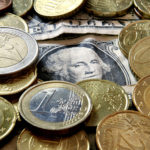The euro rebounded from a one-week low against the British pound, after official UK data showed a larger-than-expected budget deficit in February as government spending increased at the fastest annual pace in a year.
EUR/GBP hit a session high at 0.8366 at 09:05 GMT, after which consolidation followed at 0.8357, adding 0.1% for the day. Support was likely to be received at March 20th low, 0.8329, while resistance was to be met at March 20th high, 0.8369. On March 18, the pair hit 0.8400, the strongest since December 18.
The UK Office for National Statistics reported today that nations expenditures exceeded revenue by 9.3 billion pounds, in comparison with 9.2 billion pounds a year ago and exceeding analysts forecasts for a deficit of 8.6 billion pounds.
As the UK government is just half way toward its target of eliminating the nations budget deficit, Chancellor of the Exchequer George Osborne warned in his March 19th budget that despite the improved economic outlook, austerity measures are forecast to continue in the next 5 years.
“The return of growth has not in any sense obviated the need for continued austerity,” Paul Johnson, director of the Institute for Fiscal Studies, said yesterday, cited by Bloomberg. “We are still looking at borrowing 108 billion pounds this year, nearly 50 billion pounds more than planned back in 2010.”
Yesterday, the UK Office for Budget Responsibility said that it sees the economy expanding 2.7% this year, up from 2.4% forecast in December. Gross domestic product was projected to rise 2.3% next year and 2.6% in 2016 and 2017. It also lowered its forecast for the deficit in the fiscal 2013-14 by 3.4 billion pounds from previously estimated 107.8, or 6.6% of GDP.
Meanwhile, the 18-nation common currency was supported after the European Central Bank reported an unexpected increase in the currency bloc’s current account.
The ECB reported today that the euro area current account increased to a seasonally adjusted 25.3 billion euro in January, up from 21.0 billion in the previous month and confounding analysts’ expectations for a decline to 18.4 billion euro.
However, euro’s demand remained under pressure after ECB Executive Board member Sabine Lautenschlaeger commented yesterday that rates will remain at current low levels for a prolonged period of time or will even be reduced further.
Elsewhere, EUR/JPY touched a session low at 140.44 at 08:00 GMT, after which the pair trimmed some losses to trade at 140.79 at 09:29 GMT, losing 0.21% for the day. Support was likely to be received at March 5th low, 140.19, while resistance was to be met at March 17th high, 141.73.





